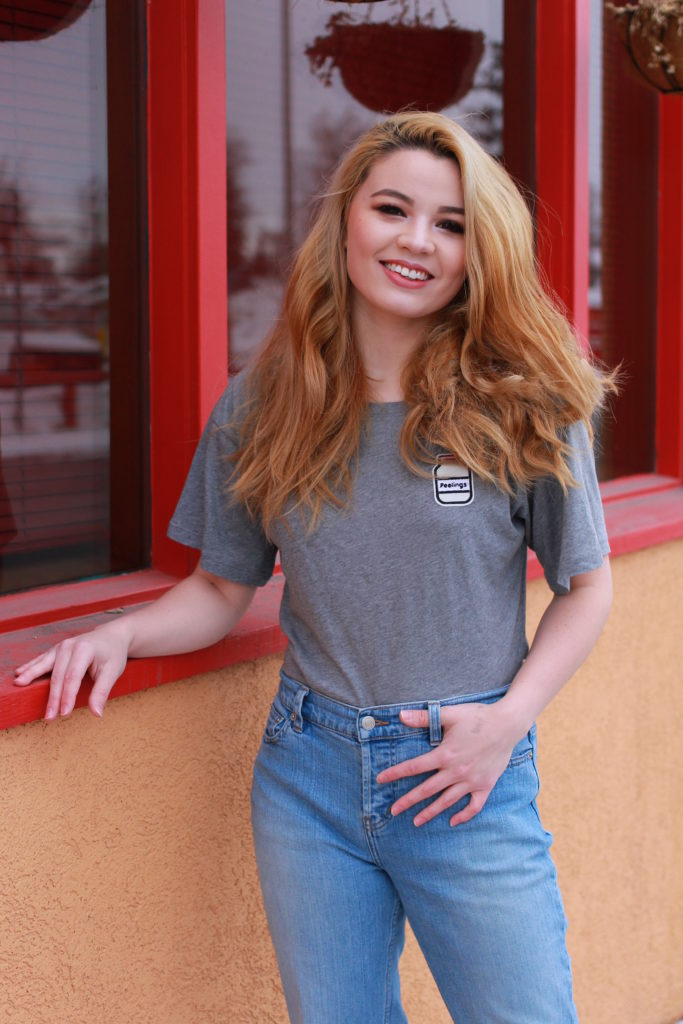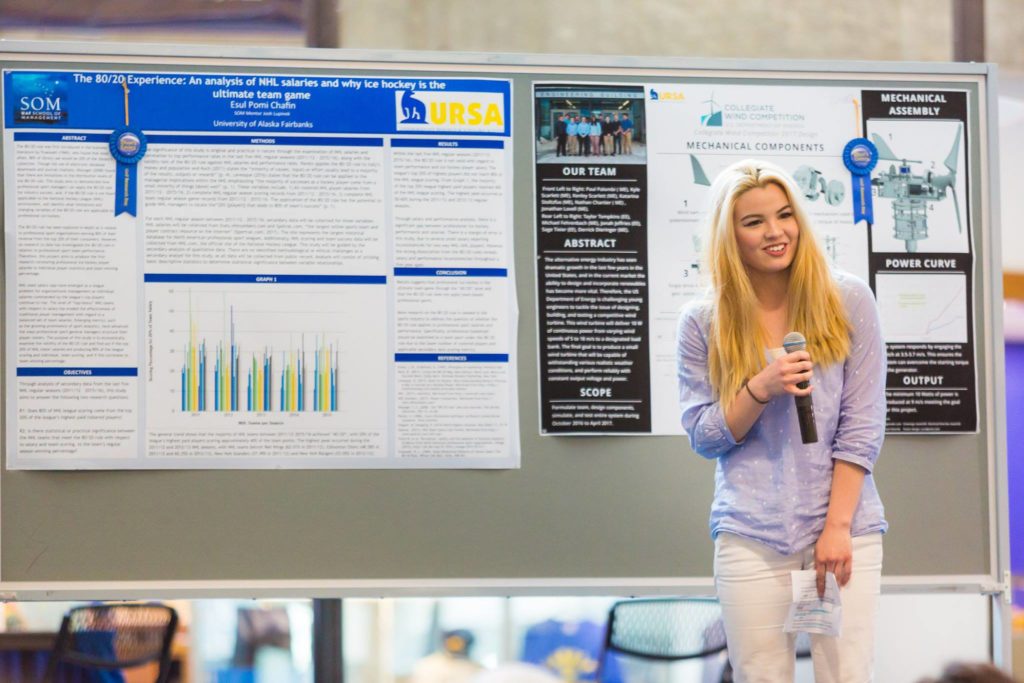No Microscope Required

When you think of undergraduate research you tend to think of geoscience, chemistry or biology. At UAF, the resource for undergraduate students to engage in research is URSA (Undergraduate Research & Scholarly Activity). School of Management student Esul “Pomi” Chafin recently embarked on a research project all without a microscope, lasers or counting any animals.
Pomi is a business administration major who graduated in May 2017. She learned about the URSA opportunity through Professor Josh Lupinek’s Entertainment & Sports Event Management course. “I competed against other students for the opportunity,” Pomi said. “But due to my data analysis and research experience from working at UA Statewide, I was chosen for the project.”
Pomi’s summer 2016 research project applied the 80/20 rule to the National Hockey League (NHL) to determine whether the top 20% of players, in terms of salaries, actually produced the highest performance levels – equal to 80% of the scoring in games. Overall, she found that the top players only score about 50% of the goals. She also concluded that hockey is more of a team sport and goals are spread out among all the players.
Taking her project to the next level, Pomi requested, and received, additional funding from URSA to present her completed project, “The 80/20 Experience: An analysis of NHL salaries and why ice hockey is the ultimate team game,” at the 2017 Global Sport Business Association (GSBA) conference in Cozumel, Mexico. “I did the research to get more data analysis experience but I got so much more,” Pomi said. “I gained professional development, I learned about deadlines, which is a big part of data analysis, and I improved my public speaking skills.”
Pomi also presented her research at the URSA Research Day in April 2017 (which is required for all students who receive URSA funding) and won the School of Management Dean’s Choice award of $500 for her poster. “This experience took me out of my comfort zone. It really improved my speaking and communication skills, and helped me develop professionally,” Pomi said. “I would tell current SOM students to try research because it’s not just for science students. Research is a very important part of business and it’s a great addition to your resume.”
Pomi plans to publish her work through the GSBA journal in fall 2017. She will also be entering the School of Management MBA program in the fall.




